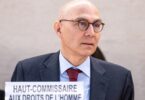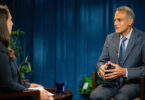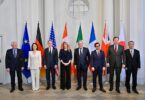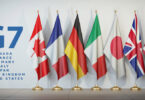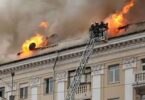WASHINGTON (AA): Just days prior to Libyan military commander Khalifa Haftar’s offensive to seize Tripoli, Saudi Arabia pledged to give tens of millions of dollars for the operation, the Wall Street Journal reported Friday.
The offer came during a visit by Haftar to Saudi Arabia, one of many that the general had with foreign dignitaries in the run up to his military campaign on April 4, according to the newspaper.
During his visit, Haftar met with Saudi Crown Prince Mohammed Bin Salman, Saudi’s intelligence chief and interior minister.
Libya has remained beset by turmoil since 2011, when a bloody NATO-backed uprising led to the ouster and death of Muammar Gaddafi after four decades in power.
Since then, Libya’s stark political divisions have yielded two rival seats of power: a UN-backed government in Tripoli and a rival government based in the east, in the cities of Bayda and Tobruk, with Haftar in charge.
Foreign powers have cemented the role of the military commander in the future of Libya, despite the U.S. and European Union calling for Haftar to avoid military conflict. “Haftar would not be a player today without the foreign support he has received,” Wolfram Lacher, a Libya expert at the German Institute for International and Security Affairs told the Journal. “The last few months, pretty much everyone jumped on the Haftar train.”
The newspaper noted while the U.S. and EU have tried to convince Haftar to avoid conflict, other governments have supported him through supplying weapons and funds, to advance his goal to consolidate power in the country.
“Foreign contacts — even to encourage peace — have secured the status of the Libyan warlord,” the Journal said. Haftar accepted the funds from Riyadh, the Journal said citing Saudi officials, with one telling the newspaper, “we were quite generous.”
UN Secretary General Antonio Guterres visited Haftar the day after he launched the assault on Tripoli, in the hopes of convincing the commander to abandon operations and help revive a UN-led peace process. Guterres said that he left the country “with a heavy heart and deeply concerned.”

